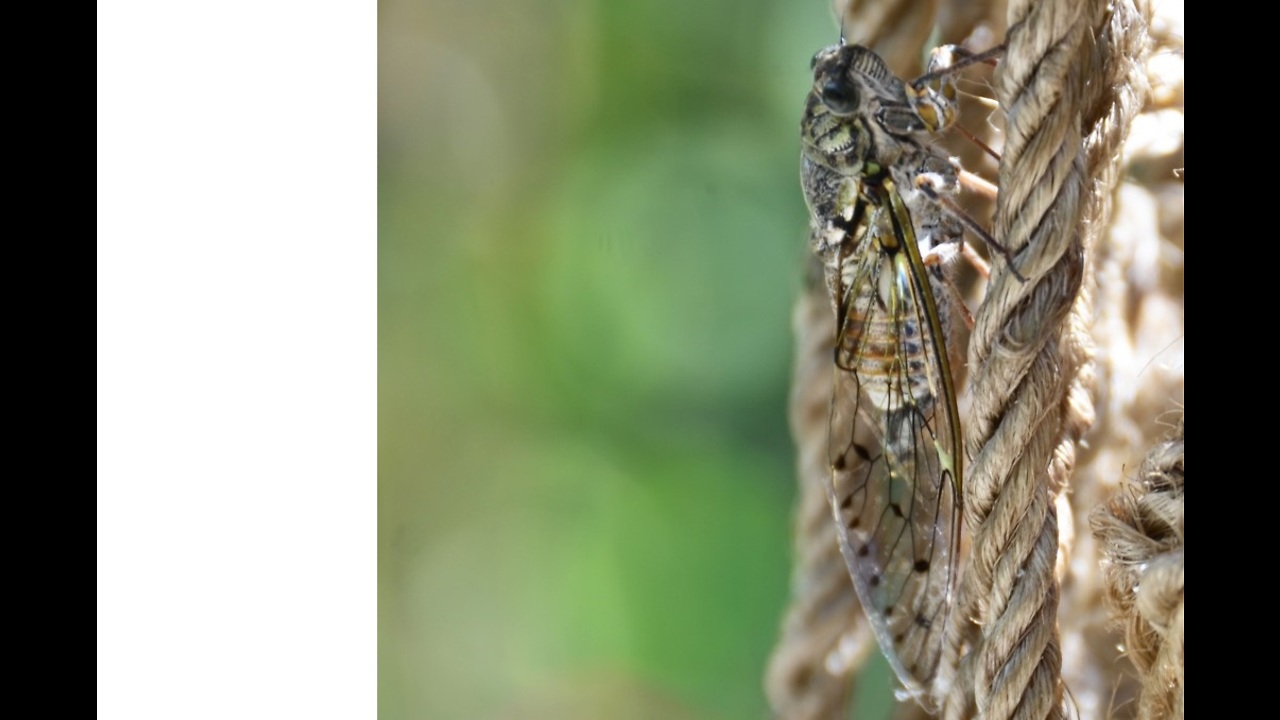Premium Only Content

the cicada the star of our hot summer days
I just filmed in a hot summer day This insect that seems like draped in a cloak of invisibility is manifested in summer, betrayed by its singing, produced by the male to attract the female, although predators there also bear some interest.
Every year, as soon as the thermometer indicates at least 22 ° C, the first cicadas make their appearance. The male is distinguished not only vocally, since he is the only one to sing, but also physically, by its small size and the hollow form of its belly (called "chapel"), almost translucent when exposed to light. He uses the latter as a sound box to amplify the sound generated by the two "cimbales", located just behind the wings, which produce a characteristic shrill sound.
But the cicada is not always as we see it then. In fact, she spends the first two years of her life at the larval stage, then the larva become nymph comes out of the ground to be fixed against a tree trunk or other vertical surface and moult there. When his former exoskeleton finally opens, he releases a winged insect as green as the foliage, the cicada as we know it was born. This coloration allows him to wait a few hours away from view as his body becomes brown.From then on, she can go to join her congener, trying, like her parents before her, to find the partner who will allow her to perpetuate her species. At this stage, he has 3 to 5 weeks left to seduce or be seduced. When a male manages to mate, it marks the end of his life because he dies. The female remains on the tree that has seen it being fertilized, then deposits up to 400 eggs on a leaf or in the hollow of a twig. Shortly after hatching, the small larvae that fall to the ground bury themselves there to start the cycle again.
This creature is said to be the loudest insect in the world. Of the 1500 species listed, only about twenty are present in the South of France. The cicadas feed on sap, which they collect by plunging their trunk in the plants, without causing damage to the plants and trees they puncture, a unique virtue.The number of cicadas is in sharp decline in the nature. For my part, about twenty years ago, about twenty years ago. Admittedly, birds, grasshoppers, wasps and praying mantises are formidable predators for the cicada, but the man has his share of responsibility too. Fires, pesticide use and deforestation play an important role in weakening the population. We must appreciate the privilege we are given to be able to hear his song of seduction.
-
 11:32
11:32
DJ_ZEMBRILO
2 years agoHalf-Life Deathmatch Multiplayer 2022 ( funny sound effect )
163 -
 3:04
3:04
AFV
4 years agoDog Days Of Summer
1.17K1 -
 0:08
0:08
DavidPhelps
4 years agoLazy days of summer
1.7K -
 1:24
1:24
lisamariem9653
4 years agoRainy Summer Days
1.11K -
 2:13
2:13
WFTX
4 years agoOutdoor camps hot this Summer
43 -
 1:52
1:52
WMAR
4 years agoCicada Parade-a
36 -
 2:05
2:05
WXYZ
4 years agoSummer warmth!
15 -
 9:52
9:52
Del Hollow Productions
4 years agoHot Summer Sausage
54 -
 4:01:21
4:01:21
The Sufari Hub
6 hours ago🔴TAKING ON THE MAFIA - Spider-Man Remastered - The city that never sleeps
19.7K1 -
 LIVE
LIVE
Eternal_Spartan
9 hours agoClair Obscur: Expedition 33 Pt. 3 | USMC Vet | Come Join the Best Chat on Rumble!!!!
152 watching